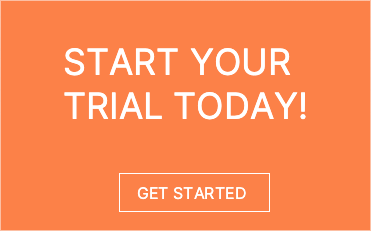

By Haley Holmes
Jun 29, 2023
ChatGPT - OpenAI’s text-generating AI chatbot, introduced in November 2022 has indeed taken the world by storm. In healthcare, ChatGPT is a hot topic of discussion both among healthcare professionals and patients. From automatically generating patient records and streamlining communication to assisting in scheduling appointments and managing reminders ChatGPT is transforming the way healthcare providers deliver care to their patients. Let us in this blog post discuss how ChatGPT can help ease the burden on healthcare providers but still falls short of being completely reliable.
What is ChatGPT and how it can help physicians?
ChatGPT is an artificial intelligence chatbot that uses natural language processing to generate human-like text based on the context of the conversation. This technology has the potential to perform some of the physician’s daily tasks, thereby freeing up more time to spend on patient care. The following are a few ways in which ChatGPT can automate some of the routine administrative tasks, allowing physicians to improve efficiency and quality of healthcare. But the question is how reliable is it? Let’s delve deeper to explore it.
1. ChatGPT can generate rough drafts for responses to patient emails. Ever since the pandemic outbreak physicians have been overwhelmed by the volume of digital messages they receive from patients. ChatGPT can help physicians send email responses to patients allowing them to focus on patient care activities. A study conducted by researchers at the University of California, San Francisco found that using AI powered chatbots to send emails to patients significantly decreased the time spent by physicians on emails by 50% without compromising on patient care. However, the email copy the AI chatbot generates typically needs editing. Hence, humans might be needed to review and modify AI drafted emails.
2. ChatGPT can assist physicians in performing EHR documentation tasks that are perceived as a main driver of burnout. By using natural language processing, ChatGPT can automatically generate accurate and detailed patient notes directly into the EHRs based on the physician’s input. This significantly reduces the time physicians have to spend on EHR documentation and allows them to focus entirely on providing patient-centered care. ChatGPT can automate the process of creating clinical documentation but requires skilled human scribes to review and ensure that the machine generated output is correct and free of errors.
3. ChatGPT can help facilitate patient communication. They can answer patient queries and provide basic medical information, thus allowing physicians to focus on more important tasks, like diagnosing and treating patients. Sometimes, it provides meaningless or inaccurate responses to certain questions or situations.
4. ChatGPT can help physicians with administrative tasks like scheduling appointments, sending reminders, drafting referrals, prescription refills, generating billing codes and billing inquiries. This allows physicians to focus on more clinically important activities rather than administrative tasks that drain their time and energy. Here again it is important to note AI chatbots are not perfect and can sometimes provide inaccurate or incomplete information. In the healthcare industry, the stakes are high, and any errors can have serious repercussions.
Besides serving as a potential tool to alleviate physician workload several risks are associated with the use of ChatGPT including bias and inaccuracies based on the data they were trained on, privacy and security concerns, compliance issues and most importantly, the information generated may not be reliable and trustworthy all of which can have severe implications in healthcare. ChatGPT is known to hallucinate or generate irrelevant, nonsensical, or incorrect information. Hence it needs a huge amount of human editing and corrections. Well, ChatGPT can make physicians job easier and reduce administrative workload but the ChatGPT generated output needs significant supervision and editing by humans for safe use.

Please fill out this form.
We will reach out to you within 24 hours

Haley Holmes

Haley Holmes

Documentation is an important daily clinical responsibility. In order to optimize patient care, physicians are always on the lookout for new ways to effectively and efficiently document patient visits.
The use of virtual medical scribes has become increasingly popular in the recent years, as medical practices across the country are on the constant lookout for ways to reduce clinical documentation overload, thereby improving overall productivity.
The clerical burden associated with EHR usage is attributed as the number one cause of physician burnout. We also know that physicians spend twice as much time on EHRs and other clerical tasks compared to the time providing patient care.